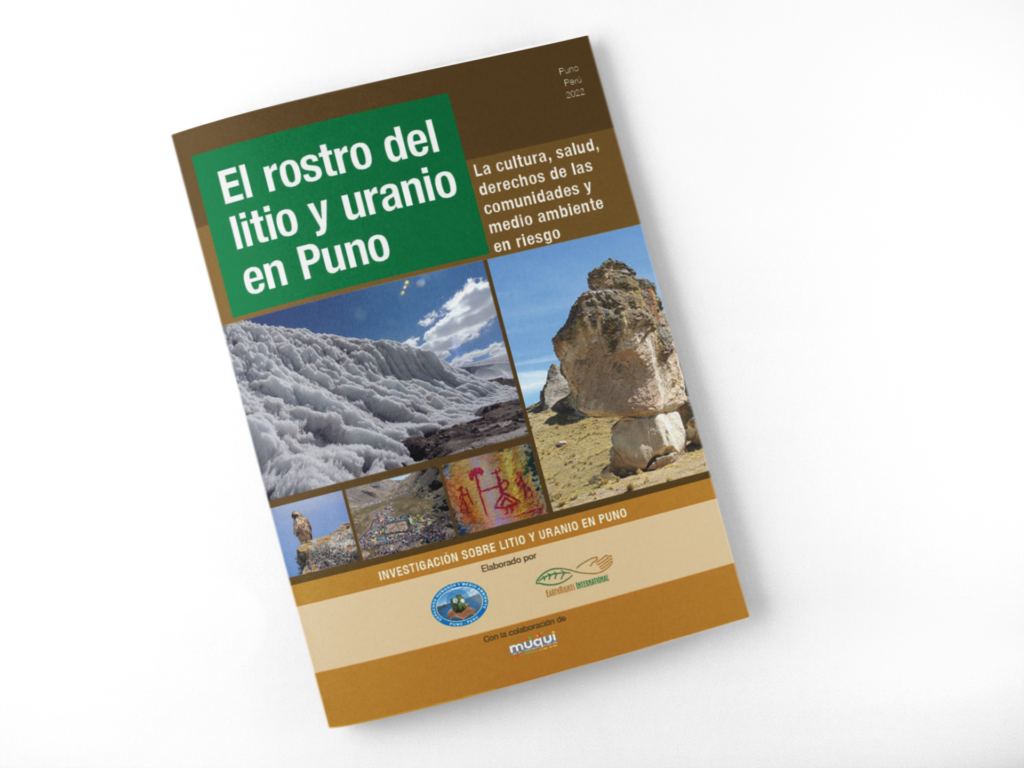
EarthRights International (ERI) and Human Rights and Environment (DHUMA) created this joint report on the Macusani and Falchani mining projects in Puno. It analyzes health, environmental and cultural impacts, as well as the violation of the collective rights of Indigenous and local communities located in the potential area of direct and indirect influence.
The Macusani and Falchani projects, both of which are owned by Canadian parent companies, respond to the global pressure to implement a “green economy,” which implies exploiting “green minerals” (lithium and uranium) and the use of “clean energy.” However, this “green minerals fever” could become yet another chapter in which mining companies and states violate the rights of local communities.
According to the report, the exploitation of lithium and uranium could seriously damage the health of these communities by exposing them to high levels of radioactivity. It would also affect their cultural practices and customs.
Additionally, the Quelccaya snow-capped mountain, one of the most important tropical glaciers in the world, would also be at serious risk, as well as the headwaters of the Inambari, Urubamba, and Azángaro basins, threatening to violate the right to water. These projects would also threaten cultural heritage by putting at risk the preservation of the archaeological site of Corani and Macusani, declared Cultural Heritage of the Nation in 2005, as well as an extensive area where cave paintings are found and which in 2009 was declared an archaeological landscape.
There are many indications that the affected groups do not have adequate information about the mining projects and their potential impacts. In addition, both projects are taking place in areas that lack strong environmental governance and capacity to address already existing mining-related harms and conflicts.
We hope that this research and report will help to create informed decisions that safeguard communities rights and exercise their self-determination. We also hope that it will contribute to the work of civil society organizations, the Peruvian State, and international organizations to prevent hundreds of families, their culture, and natural resources from being harmed.





